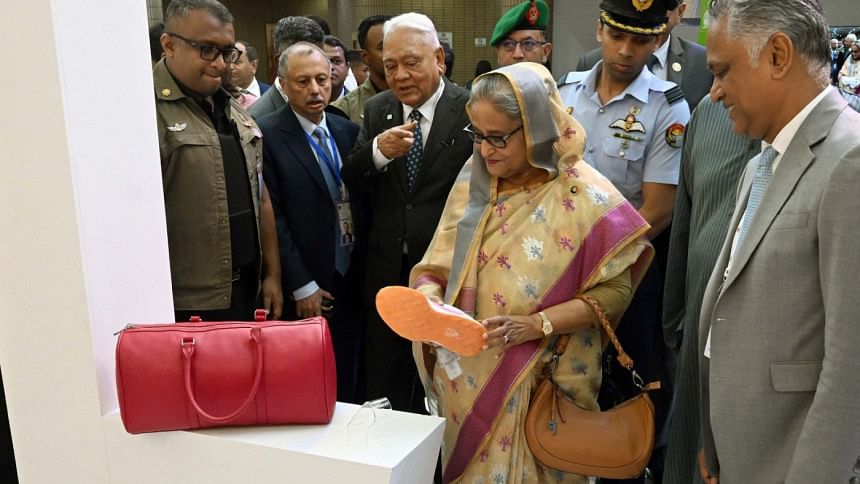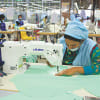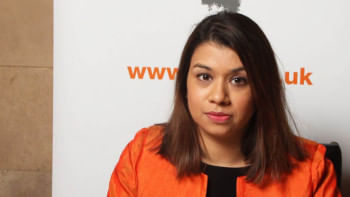Bangladesh emerging as a sourcing hub

Bangladesh is rapidly emerging as a dependable source of leather goods and footwear for many foreign buyers owing to low prices and good quality, according to industry people.
Businesspeople say that Bangladesh has become a dependable source for such items due to the diversification of leather products as well as market diversification.
New products, such as sneakers, backpacks, leather homeware, and moulded luggage, are now reaching new markets such as India, Turkey, Algeria, Poland, and Chile.
These growing sectoral capacities have generated a real possibility to double Bangladesh's existing global market share, which stands at less than 1 percent, they added.
"Bangladesh is growing as an important sourcing destination for global leather footwear and leather goods. This public-private partnership for sectoral upgradation has brought massive change to the industry," said Syed Nasim Manzur, president of the Leathergoods and Footwear Manufacturers & Exporters Association of Bangladesh (LFMEAB).
About 120 new factories have opened in the last six years while many international buying houses have opened offices in Bangladesh to source footwear.
He made this comment while speaking at the opening day of the Bangladesh Leather Footwear and Leathergoods International Sourcing Show 2023 at the Bangabandhu International Conference Center in Dhaka yesterday.
"Those exporters used to source products from China and Vietnam. They are now doing it from Bangladesh because they get quality products at low prices," added Manzur, also managing director of Apex Footwear Ltd.

From sectoral exports of $224 million in FY 2009, it has grown to exceed $1.7 billion in FY 2023, he mentioned.
Bangladesh is now supplying shoes, wallets, sandals, belts, accessories, flip-flops and different types of boots to several leading global retailers, including Fila, Deichmann, Timberland, Aldo, H&M, Marks and Spencer, s.Oliver and Wolverine.
Whereas leather once dominated with more than 50 percent share of sectoral exports less than two decades ago, today finished leather products account for more than 90 percent.
There are now 264 factories in the country -- of which 98 percent have received compliance status -- directly employing 200,000 lakh people.
The share of exports to the US has grown to 26 percent, with over 18 million pairs of shoes worth $453 million being exported, according to the LFMEAB.
Only eight countries exported more footwear to the US in 2022, according to the Footwear Distributors and Retailers of America.
Bangladesh's footwear exports to India have also seen a massive 434 percent increase in the past five years, it added.
The challenge is longer lead times for domestic producers, who take 90 to 100 days compared to 45 to 60 days in competitor countries.
Manzur said higher value addition, product diversification, and emerging design capabilities had enabled the industry to begin shifting away from only low-price products.
"Now the time has come to also move into the higher price segments, from volume-based export to value-based export," he added.
Arifur Rahman Chowdhury, general manager of ABC Footwear Industries Limited, said the sector is promising because raw materials are being produced domestically.
He said they exported goods worth $12 million in the last fiscal year and, compared to previous years, the export volume has increased.
Apart from this, they are adopting the latest technology in their factories, he added.
Mohammad Shahadat Ullah, executive director of Maf Shoes Limited, said his company exported goods worth Tk 850 crore last fiscal year.
This fiscal year, a projection of Tk 1,000 crore has been made, underlining that Bangladesh is becoming a good hub for buyers, he added.
He also said his company had purchased 30 acres of land in the Mirsarai Economic Zone to set up an industrial park for leather goods and backward linkage industries.
Saiful Islam, managing director of Picard Bangladesh Limited, said at a recent event that the growth rate of this sector is quite good.
"Looking at the achievements of this sector in the last few decades, we have started gaining the trust of international buyers," he added.
LEATHER INDUSTRY DEVELOPMENT AUTHORITY
While inaugurating the event yesterday, Prime Minister Sheikh Hasina announced the formation of a leather industry development authority to enhance the sector's growth, UNB reports.
"If we can do it [develop area-based tannery industries], the preservation, processing and use of leather would go up. Because, it will develop as a big industry for us," she said.
There are about 64 local leather goods companies in Bangladesh, including Apex Footwear, Jennys Shoes and Bay Footwear that export various items, mainly to Japan, the EU and to some extent, the US.
The three-day event was jointly organised by the LFMEAB and commerce ministry.
It aims to showcase some of the best leather products produced by leading manufacturers and exporters in Bangladesh and is a platform for global brands and retailers to source footwear and leather goods directly from local manufacturers and exporters.

 For all latest news, follow The Daily Star's Google News channel.
For all latest news, follow The Daily Star's Google News channel. 








Comments